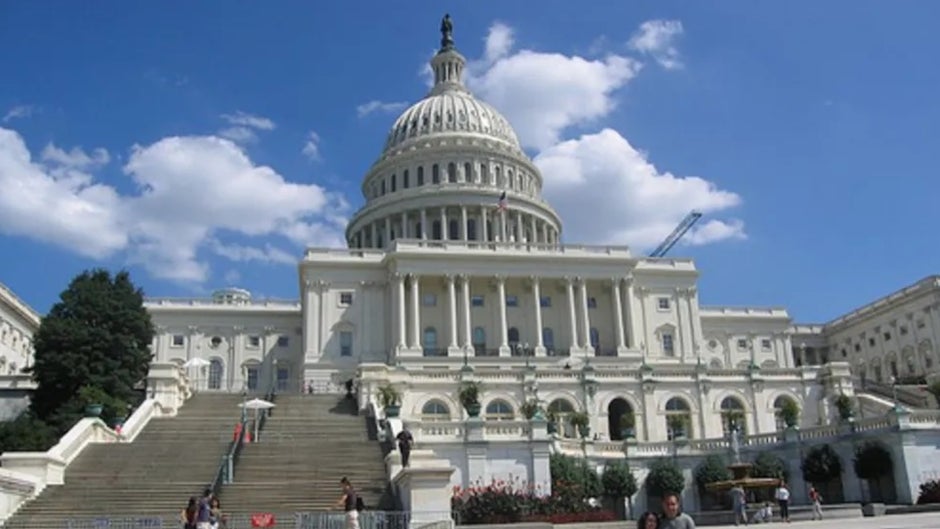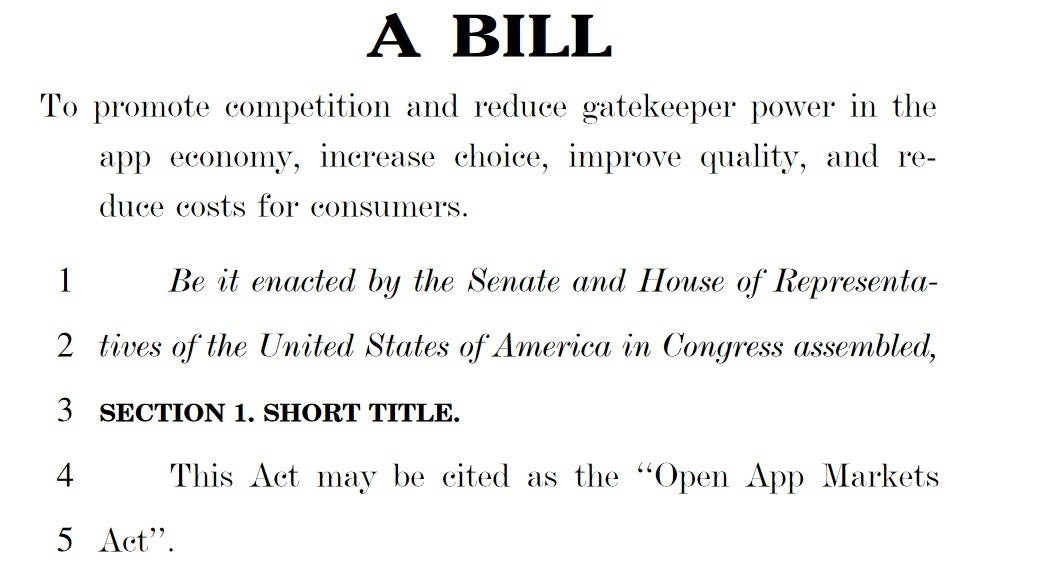Apple faces big time changes to iOS and the App Store if this proposed bill becomes law

A bipartisan trio of U.S. Senators, Richard Blumenthal (D-CT), Marsha Blackburn (R-TN), and Amy Klobuchar (D-MN), introduced today the Open App Markets Act. The bill is directed toward Apple's App Store iOS app storefront and Google's Play Store Android app storefront. The Act, according to a press release from Senator Blumenthal's office, "would set fair, clear, and enforceable rules to protect competition and strengthen consumer protections within the app market."
Discussing Apple and Google, the press release says that they have "gatekeeper control" of the two dominant app stores which allow them to "dictate" the terms of these app stores as they relate to consumer choices and the competition in the stores. The senators note that in 2020, American consumers spent close to $33 billion in app stores while downloading 13.4 billion apps.
Bill focuses on Apple's App Store and Google's Play Store
The release adds that both Apple and Google use their gatekeeper control to reduce competition in the app store market. As examples, the release cites Apple's walled garden which prevents users from sideloading apps from third-party app stores on the iPhone. The company also requires that in-app purchases be processed through Apple's own in-app payment platform for which it receives as much as a 30% cut of in-app revenue.

Today it's just a bill on Capital Hill. Tomorrow, it could be a law
Google also takes up to a 30% cut of in-app revenue for purchases made over the Google Play Store. The difference is that Google allows Android users to sideload apps from third-party app stores.
The Open Markets Act would give developers the right to inform consumers about lower-priced in-app purchasing options, protect sideloading of apps, and more. The bottom line is that it would give consumers more control over their devices, stop app stores from taking advantage of app developers and sets rules that seek to protect the privacy, security, and safety of consumers.
A number of influential tech and consumer groups have approved the Open Markets Act. Sumit Sharma, Senior Researcher, Technology Competition at Consumer Reports said, "The targeted market rules proposed in this legislation will help create an app ecosystem that is fairer and more competitive, and will enable unfettered innovation by all companies – big and small – to the benefit of consumers. The legislation is crucial as smartphones have become central to our digital ecosystem, and apps are increasingly the primary mode for consumers to access online services."
Others giving the proposed bill a thumbs up include Internet Accountability Project, Public Citizen, Coalition for App Fairness, Color Of Change, News Media Alliance, Public Knowledge, Lincoln Network, Consumer Action for a Strong Economy (CASE), Digital Progress Institute, Electronic Frontier Foundation, American Principles Project, and the American Economic Liberties Project.
Others also heaped praise on the bill such as Jon Schweppe, director of policy and government affairs, American Principles Project. He said, "A healthy free market requires open and fair competition. Unfortunately, Big Tech companies have rigged the game by engaging in anti-competitive practices that restrict the ability for innovators and entrepreneurs to challenge their market dominance.
This not only distorts the free market at large, but it harms consumers directly. The Open App Markets Act gets to the heart of the problem with the app store market: Google and Apple have leveraged their market power to prevent any of their competitors from achieving a foothold, resulting in higher prices and a lack of choices for consumers. Sen. Blackburn deserves a great deal of credit for taking on this challenging issue and doing so in a bipartisan manner. American Principles Project is proud to support the bill."
How would Apple respond to a law that forced it to allow sideloading on iOS?
If you're curious about how this bill makes it way to become law, we suggest a quick refresher by viewing the School House Rock "I'm Just a Bill" video. If the bill is passed by the Senate, it heads to the House for another vote. If it passes both chambers, next stop is the White House where the president can sign the bill turning it into a law, or he can kill it with a veto (which can be overturned with the House and Senate voting to approve the bill by a two-thirds count).
We have to wonder how Apple would respond to a law that would require it to allow sideloading of apps from third-party app stores. Apple has always cited the security, safety, and privacy of iOS to prevent sideloading on the operating system. We will keep a close eye on this bill and see what happens as it makes it way around the institutions of Washington D.C.
Follow us on Google News













Things that are NOT allowed:
To help keep our community safe and free from spam, we apply temporary limits to newly created accounts: